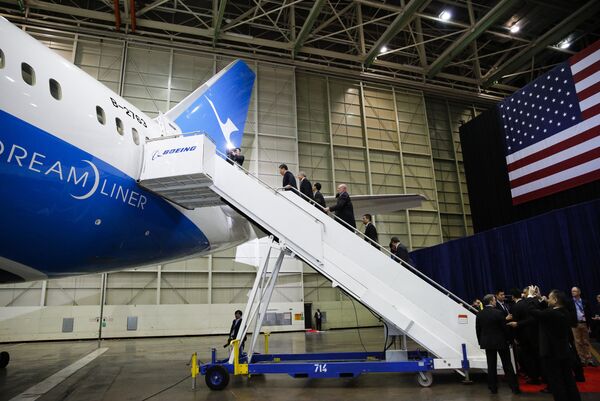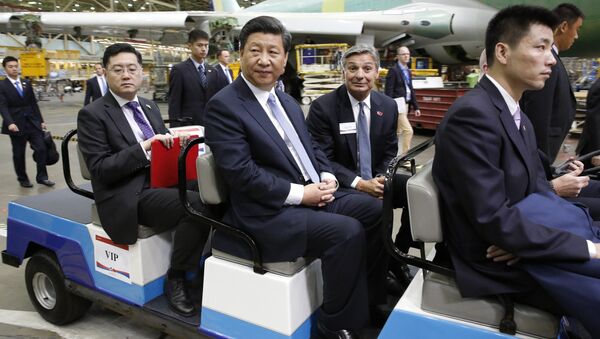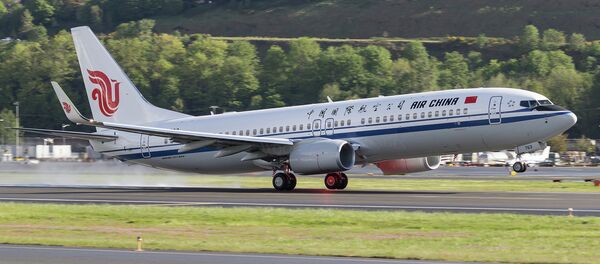The US has launched a trade dispute against China with the WTO over China's 17 percent import tax on foreign aircraft and parts, claiming that American aircraft and components are put at a disadvantage against Chinese producers because of a tax break Beijing offers to locally made small aircraft.
Meanwhile, a leading Russian researcher at the Institute of Far Eastern Studies of the Russian Academy of Sciences Aleksandr Larin thinks that this is simply the way China supports its national producers and defends its own economic interests.
“There is a constant economic rivalry between China and the US,” he told Sputnik. “However, the two are strongly dependent on each other economically, therefore such incidents are more of a rule rather than an exception.”
The expert explained that during his visit to the US in September, Chinese President Xi Jinping inked a large deal between Boeing and China's Commercial Aircraft Corporation for the purchase of 300 Boeing aircraft worth $38 billion and on construction of the first aircraft assembly plant in China.

The expert therefore suggested that China is trying to “pay less and to earn on taxation.” The US, he added, would hardly let such a dispute spoil the deal and sour the relationship with China.
However, Larin acknowledged that China is gaining economic weight and is acting more actively and independently in its trade and economic relationship. Chinese rivals, in turn, do not welcome such behavior.
Also, competition between two larger trade and economic formats, which are being created by both the US and China in the region is also shaping up.
The second format is the Regional Comprehensive Economic Partnership advocated by China. This is a proposed free trade agreement (FTA) between the ten member states of the Association of Southeast Asian Nations (ASEAN) (Brunei, Burma (Myanmar) Cambodia, Indonesia, Laos, Malaysia, the Philippines, Singapore, Thailand, Vietnam) and the six states with which ASEAN has existing FTAs (Australia, China, India, Japan, South Korea and New Zealand).
There is a definite economic battle between China and the US represented by these partnerships, which will influence the economies and geopolitics of both of the great powers.




